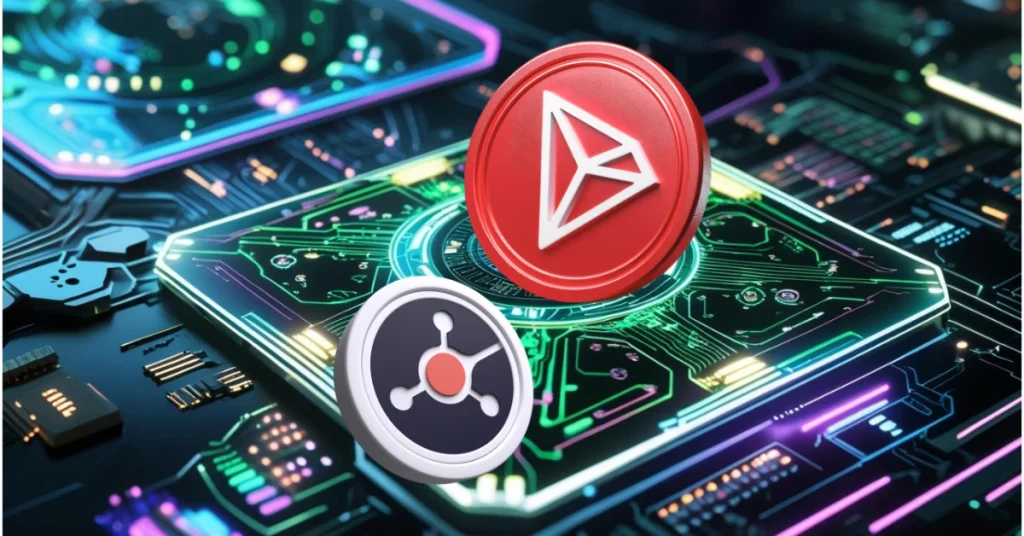
Deutsche Telekom AG, the world’s fifth-largest telecommunications provider by revenue, has taken a notable step into blockchain by joining the NEAR ecosystem as an Enterprise Node Operator.
The partnership, announced on 11 November, positions the German telecom giant as a validator, strengthening NEAR Protocol’s decentralisation and enhancing network security.
The move signals Deutsche Telekom’s increasing involvement in blockchain and Web3, as it expands its operations beyond traditional telecoms, and aligns with the company’s emphasis on user data control and data sovereignty.
The partnership also complements Deutsche Telekom’s growing “staking portfolio,” aimed at diversified decentralised networks.
NEAR Protocol partnership aligns with Deutsche Telekom’s Web3 expansion strategy
Deutsche Telekom’s role as a validator within NEAR Protocol aligns with its broader digital and Web3 strategy, which includes a focus on fostering data sovereignty and advancing decentralised technologies.
Oliver Nyderle, head of digital trust and Web3 infrastructure at Deutsche Telekom, sees NEAR’s decentralised structure as aligning with the company’s approach to data control.
Although the scale of Deutsche Telekom’s involvement as a validator has not been disclosed, the partnership enhances NEAR’s decentralisation and highlights Deutsche Telekom’s pivot toward new blockchain-based opportunities.
Minimum staking requirements for NEAR validation
Becoming a validator on NEAR Protocol requires meeting a dynamic minimum staking threshold known as the “seat price,” which is influenced by validator demand.
The minimum stake required to qualify currently sits at 67,000 NEAR (equivalent to around $383,000).
This requirement underscores the financial and technical commitments that validators must make to support the NEAR blockchain.
Notably, NEAR’s market value surged by 9.5% following Deutsche Telekom’s announcement, reaching a trading price of $5.60.
By joining NEAR’s Enterprise Node Operators program, Deutsche Telekom diversifies its staking portfolio, expanding into blockchain networks dedicated to “decentralised AI and scalability.”
This initiative builds on the company’s ongoing investments in blockchain and crypto staking, underscoring its strategic pivot towards decentralised finance (DeFi) and Web3 technologies.
As staking becomes a pivotal element of blockchain networks, Deutsche Telekom’s involvement brings institutional credibility to NEAR and contributes to the network’s security.
German telecom’s renewable energy pilot for Bitcoin mining
Deutsche Telekom’s NEAR collaboration arrives just days after its subsidiary, MMS, partnered with Bankhaus Metzler, Germany’s second-oldest bank, on a renewable energy-based Bitcoin mining pilot.
This project seeks to repurpose surplus renewable energy for Bitcoin mining to support Germany’s energy grid.
This pilot adds to Deutsche Telekom’s blockchain endeavours and suggests a commitment to environmentally sustainable crypto projects.
The renewable energy initiative could provide valuable insights for future energy management strategies that balance energy grid stability with blockchain needs.
Deutsche Telekom’s decision to become a NEAR validator highlights the telecom giant’s ambitions within the blockchain space.
As NEAR Protocol evolves, this collaboration could set the stage for additional institutional support and adoption.
Deutsche Telekom’s engagement not only strengthens NEAR’s decentralised network but also reinforces the company’s commitment to digital sovereignty and user privacy, key values in the evolving Web3 landscape.
Following Deutsche Telekom’s announcement, NEAR’s price surged by 9.5%, reflecting market optimism regarding the protocol’s expansion and institutional backing.
The recent price increase could attract additional interest from investors and validators looking to support the network’s growth.
Deutsche Telekom’s involvement may further catalyse NEAR’s adoption, bolstering the protocol’s position in the competitive blockchain space.
The post Germany’s Deutsche Telekom enters blockchain with NEAR validator role appeared first on Invezz















 English (US) ·
English (US) ·